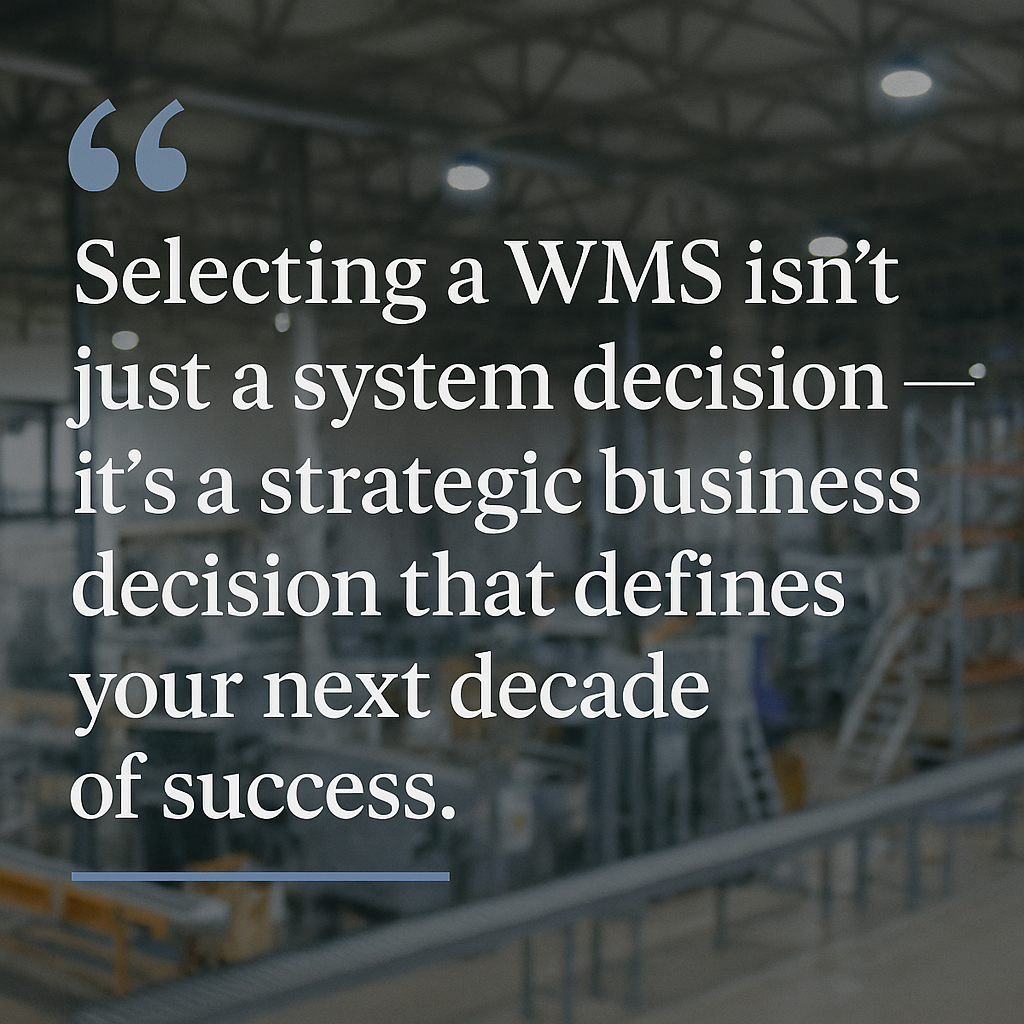
In today’s manufacturing environment, selecting a Warehouse Management System (WMS) is a critical decision.
It’s not just about picking software — it’s about choosing a foundation that will support your operations, efficiency, and growth for years to come.
While headlines are filled with discussions about AI and robotics, the vast majority of manufacturers in 2025 still need practical, reliable WMS solutions that deliver results today — not speculative features for tomorrow.
Here are five essential questions you should ask when evaluating any WMS:
1. Does the WMS Fit Our Long-Term Operational Needs?
Rather than chasing trends, manufacturers should prioritize solutions that align with real-world needs like inventory accuracy, labor efficiency, customer fulfillment speed, and system scalability.
Modern Materials Handling recently reported that over 70% of warehouse technology investments in 2024 focused on core execution improvements — not experimental technologies.
2. Can It Integrate Seamlessly with Our Existing Systems?
Manufacturers already run complex operations across ERP, MES, and TMS platforms.
Choose a WMS that offers proven integration capabilities, minimizing disruption and accelerating time-to-value.
Ease of integration remains a top priority according to 2025 insights from Automotive News.
3. Is the System Configurable to Match Our Processes — Without Excessive Customization?
The best WMS platforms offer configuration options that adapt to your facility’s needs without forcing costly custom development.
Flexibility ensures faster deployment, easier updates, and longer system lifespan without locking you into outdated workflows.
Industry Insight: What Manufacturers Are Prioritizing in 2025
• 72% are investing in improving inventory accuracy and labor productivity
• 64% plan to enhance ERP and WMS integration
• 18% are piloting robotic material handling technologies
• Less than 10% rank AI and full automation as immediate investment priorities
Source: Modern Materials Handling, 2024
4. Does It Provide Real-Time Visibility and Support Operational Compliance?
Inventory visibility, order tracking, and compliance reporting aren’t “nice to have” — they’re table stakes.
Look for systems that provide clear, actionable dashboards to your operations team, and help maintain traceability and regulatory standards.
5. Is the WMS Vendor Focused on Practical Solutions Today — but Watching the Future?
While AI and robotics are reshaping certain areas of warehousing, most manufacturers today need systems that solve immediate challenges.
However, it’s smart to choose a WMS vendor that remains aware of trends like AI-driven optimization and robotic material handling integration — and is positioning to support these innovations as they become practical for the broader market.
Final Thought
In 2025, the right WMS isn’t about chasing the latest buzzwords — it’s about investing in a platform that improves accuracy, increases efficiency, and grows with your business.
By focusing on these five questions, manufacturers can cut through the noise and find a system that delivers practical value starting Day One — with a future-ready mindset built in.





